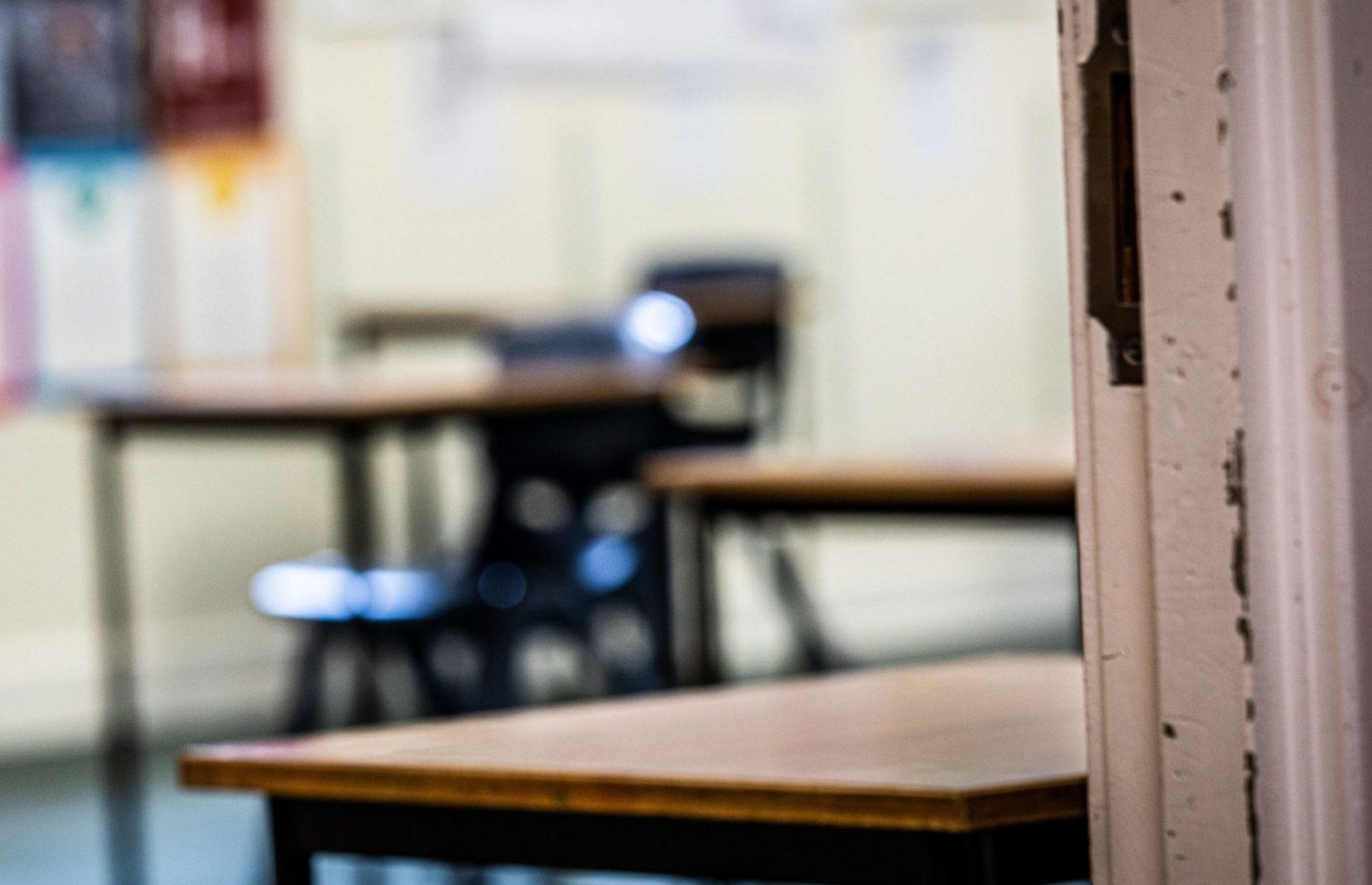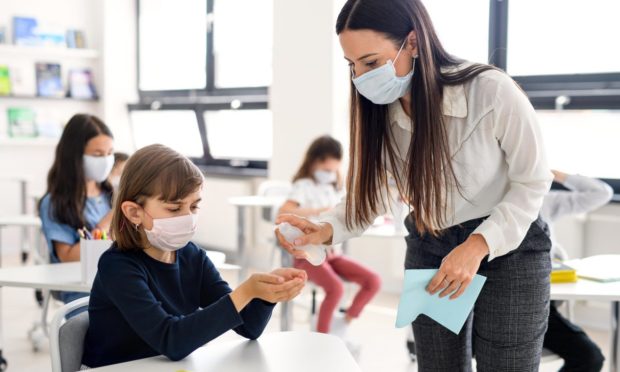Three out of five Scottish teenagers were concerned that returning to school would increase the risk of their family contracting Covid-19, new research has found.
The study, which looked at how pupils dealt with their return to school last August after the first coronavirus lockdown, also found that the vast majority of teenagers continue to follow guidelines on face coverings, handwashing and social distancing.
The findings are part of the TeenCovidLife survey of more than 2,000 young people across Scotland, aged 12 to 18, polled between August and October 2020.
The study’s over-riding finding was that 59% of those youngsters polled said they were “pretty much” or “very” worried about the impact returning to school would have on their family’s chance of catching Covid-19.
This compares with 48% of those same pupils who said they were pretty much, or very worried, about their own increased risk of contracting Covid-19 after returning to school.
The study, carried out by the universities of Edinburgh and Glasgow, sought to gauge how young people have been affected by changes brought about lockdown.
Of those polled, 88% did not report any Covid-19 infection personally and 84% said there had been no infection within their household.
On hand-washing, 84% of respondents said that they washed their hands much or a little more now, compared with before the first lockdown.
Concerned about health of others

Chloe Fawns-Ritchie, research assistant at the University of Edinburgh, said: “Young people are often criticised for not following the Covid-19 rules, therefore putting the lives of others at risk.
“Our study found that most young people are indeed following the rules, and are concerned about the health of others.”
When pupils first returned to schools in August it was under less strict rules around face coverings.
However from October new guidance advised senior pupils and their teachers to wear face coverings in classrooms for schools in the level 3 and 4 restriction areas.
Other guidance advised staff to wear face coverings where social distancing was not possible and that parents should wear masks at the school gates.
The survey asked youngsters about their compliance with face covering guidance outwith their school day.
When asked about face coverings, 94% said they wore one most, or all, of the time in shops and on public transport. And 89% felt that people should wear face coverings in enclosed spaces.
When asked about social distancing, 65% of those polled said they maintained social distance most, or all, of the time.
Support for self-isolation guidelines was high with 93% saying they were likely to self-isolate after contact with a positive case – even if they felt well.
Shouldering unseen burden of responsibility
Dawn Haughton, schools research network manager for University of Glasgow’s Schools Health and Wellbeing Improvement Research Network, said: “There is no doubt that this generation of young people is shouldering a huge unseen burden of responsibility.
“As well as having to study more independently and missing out on time with their friends, these findings also show how aware they are of the potential impact of their actions on the health of others.
“As a result, it is more important than ever that we find ways to protect their mental health and support them through this crisis.”
Covid-19 infections are much higher now than when this study was carried out, so researchers believe these figures could be different now during the current lockdown.
The findings, which also include data on vaccines and exams, will be made available online shortly, and shared with schools and with policy makers.
A third survey will be launched in spring to understand how young people are coping and adapting a year on from the start of the pandemic.










